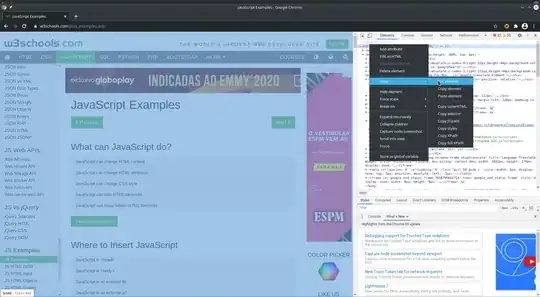On Google Chrome, when we go to the development mode, right-click an HTML element → Copy → Copy element, we can copy the HTML content of a webpage. Below is an example of the procedure I've described:
My problem is that, when I use wget for downloading the webpage, I get the source code of the page, including its JavaScript addresses and scripts.
I'd like to use the command line for downloading the final HTML result of a page, just like Google Chrome does in my example. Getting the HTML content that is being displayed on the page would be useful for automating the extraction of information from webpages for me.
Is it possible to download the HTML of a page (not the source code) using wget or other command line tools?

wgetdoes not process JavaScript to generate the final rendering of a page. When I have needed to get a complete copy of a site in its current state — more or less — it has been necessary to use a browser extension that executes only afteronreadystatechangecompletes. – Mar 04 '21 at 06:31pythonandselenium, but I guess that is more a question for Stackoverflow ... However, there are many resources for that online and probably this has been answered before. You will find a lot about PhantomJS, but that project is discontinued. You should use Chromium or Firefox as driver. – pLumo Mar 04 '21 at 07:52